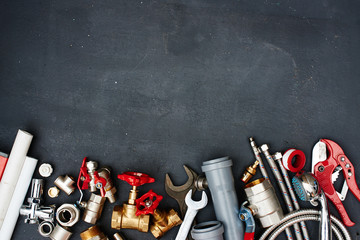Plumbers are trade workers who specialize in installing and maintaining public utilities such as wastewater and sewage systems in residential and commercial buildings. They carry out routine maintenance to ensure that the systems operate smoothly. A plumber must understand the nature of each system that he works on so that he can properly deal with it. The plumbers’ skills include handling different pipe works and ensuring that they are placed correctly.
To become an effective plumber it is important to have a formal education. Some of the basic programs that can help a person attain plumber status include plumbing courses, certification in state-approved plumbing programs, and four years of relevant work experience. Plumbers must have at least a diploma in high school or be completing an equivalent course. There are various programs available to help plumbers acquire these requirements.
Plumbers’ master plumber certification is achieved after completion of an apprenticeship program. Different states have different regulations regarding the number of years a plumber has to serve in the program before applying for a master plumber certificate. An apprenticeship program takes about two years. Plumbers can choose to complete the two years through correspondence or by complete distance learning. The apprentice can either work full-time in the plumbing company or work part-time at his own schedule.
At the platinum plumber’s scheme, an aspirant plumber must complete an approved training program, which lasts for twelve weeks or more. During the course, he will be trained to carry out basic water drainage systems, maintenance of drainage systems, installation, and repair of common plumbing systems, handling hazardous materials, use de-clogging equipment and use state-of-the-art equipment. The aspirants at the gold level plumbers scheme need to complete plumbing courses that last for three years or more. During the course, the plumbers at the gold level are taught advanced skills such as leak detection and water damage restoration.

Basic plumbers’ tools include bending, drilling, screwdrivers, torches, jackhammers, water pressure gauges, spray guns, and wrenches. These tools can be rented from any local tool rental shop. Basic tools include drainpipes, faucets, bathtubs, toilets, sinks, radiators, chimneys, water heaters, and laundry machines. The plumbers also need to have a first aid kit containing bandages, sterilization solutions, needle nose pliers, tweezers, and rubber gloves. The plumbers need to keep a fire extinguisher in their vehicle or at their workplace.
The plumbers use various types of pipe fitting tools to perform various plumbing works. The most common of these tools are steamfitters, pipe flashings, pipe joints, water tightness devices, water pipes, and water line joiners. Some of the plumbers also perform maintenance works on sewer lines, water pipes, gas pipelines, stormwater drains, and sewage pipes. A plumber may be involved in installing or repairing cracked or broken copper pipes, installing gas or electric water heating lines, or installing gas or electric heating systems in residential buildings. Some of the plumbing tasks performed by the plumbers include repairing busted sewer lines, installing footers and flanges on foundation walls, repairing iron or concrete pipes, installing water mains, and repairing leaking or broken water pipes.
There is always a risk involved when hiring a plumber for your home repairs or building construction needs. Plumbers tend to be highly skilled tradesmen and can sometimes crack or ruin things you were not expecting. Therefore, you must seek help from reliable and experienced Plumbers whenever you need to carry out any repairs. Please do a little research about your prospective plumber before you let him into your home.